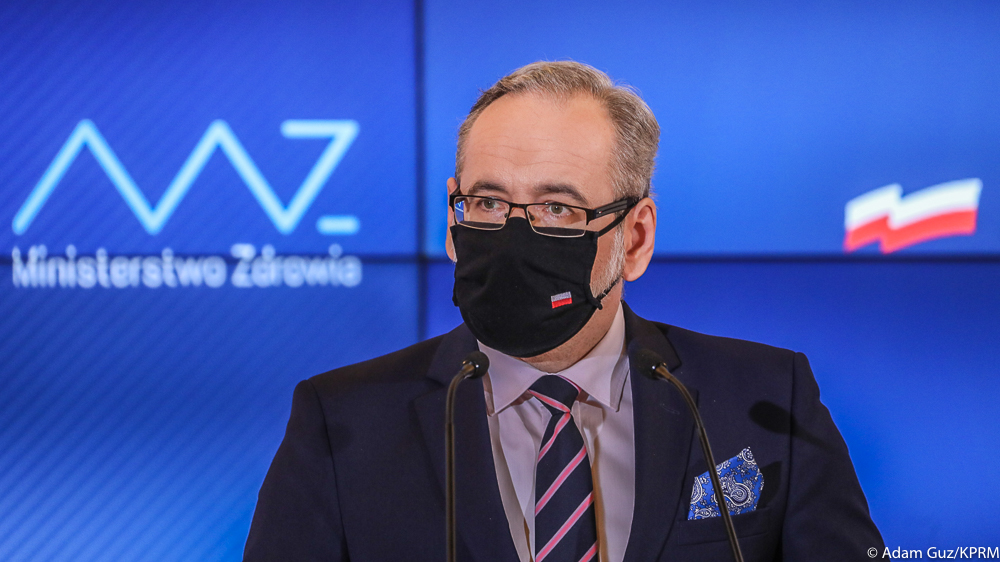Poland’s government has announced that the country will enter “national quarantine”, with current restrictions supplemented by further measures. These will include quarantine for people entering the country, the complete closure of hotels and ski slopes, and a curfew on New Year’s Eve.
The new lockdown will enter into force on 28 December, the day after the current one is due to expire, and will last until at least 17 January. It is being introduced despite a decline in coronavirus infections since early November.
In additional to current restrictions – which include compulsory face masks in public places, the closure of schools, restaurants and cultural institutions, and limits on the number of people in churches and shops – the main new measures from 28 December will be:
- Ten-day quarantine for anyone entering Poland using mass transit
- Hotels (which previously had remained open for business travellers) will be closed to all guests apart from members of the uniformed services, medical staff and patients
- Ski slopes may not open
- Shopping centres (which reopened at the end of November) will close with exceptions for grocery stores, pharmacies and shops selling books and newspapers
- Sports infrastructure will only be available for professional sports
- From 7 p.m. on New Year’s Eve until 6 a.m. on New Year’s Day people may not leave their homes apart from in certain circumstances (such as going to a pharmacy, shop or work)
Minister @MZ_GOV_PL @a_niedzielski w #KPRM: W nocy z 31 grudnia 2020 r. na 1 stycznia 2021 r. w godzinach od 19:00 do 6:00 w całym kraju będzie obowiązywał zakaz przemieszczania się. Wyjątkiem będą m. in. niezbędne czynności służbowe oraz inne wskazane w rozporządzeniu. pic.twitter.com/q4L9hGuRpy
— Kancelaria Premiera (@PremierRP) December 17, 2020
The tough new regime appears to contradict the roadmap outlined by the government in early November. It said that restrictions would be toughened or relaxed based on the national number of new coronavirus cases over the last seven days.
According to that system, only if infections rose above an average of 27,000-29,000 a day would Poland enter “national quarantine”. However, since then the number of daily cases has been falling, and the current average over the last week is around 10,000 a day.
The government has also flip-flopped on ski slopes. Initially, after the last round of restrictions was announced in late November, the development minister, Jarosław Gowin, announced that pistes would close. However, three days later, that decision was reversed and they were allowed to remain open.
While today announcing the closure of slopes and hotels, the health minister, Adam Niedzielski, suggested that people were planning to abuse the current system during the holidays. He noted the appearance on the internet of many invitations for people to attend “business breaks”.
Niedzielski warned that there are still many “more difficult days and weeks ahead of us”, reports Polsat News. Although vaccines may begin to be available at the end of this month, it will take a long time to administer them to large numbers of people, he noted.
In the meantime, if Poland is hit with a third wave of the virus, “it will certainly result in exceeding the capacity of the health service”, Niedzielski added.
Although the number of deaths have also been declining, it has not dropped as quickly as infection rates. Almost 19,000 people are currently hospitalised with COVID-19, down from a peak of 23,000 one month ago.
Under existing restrictions, Christmas gatherings this year are limited to a maximum of five guests from outside the household. School holidays will run from 24 December until 17 January, after which the government hopes that at least the youngest pupils will be able to begin returning to in-person teaching.
Main image credit: PremierRP/Twitter

Daniel Tilles is editor-in-chief of Notes from Poland. He has written on Polish affairs for a wide range of publications, including Foreign Policy, POLITICO Europe, EUobserver and Dziennik Gazeta Prawna.




















